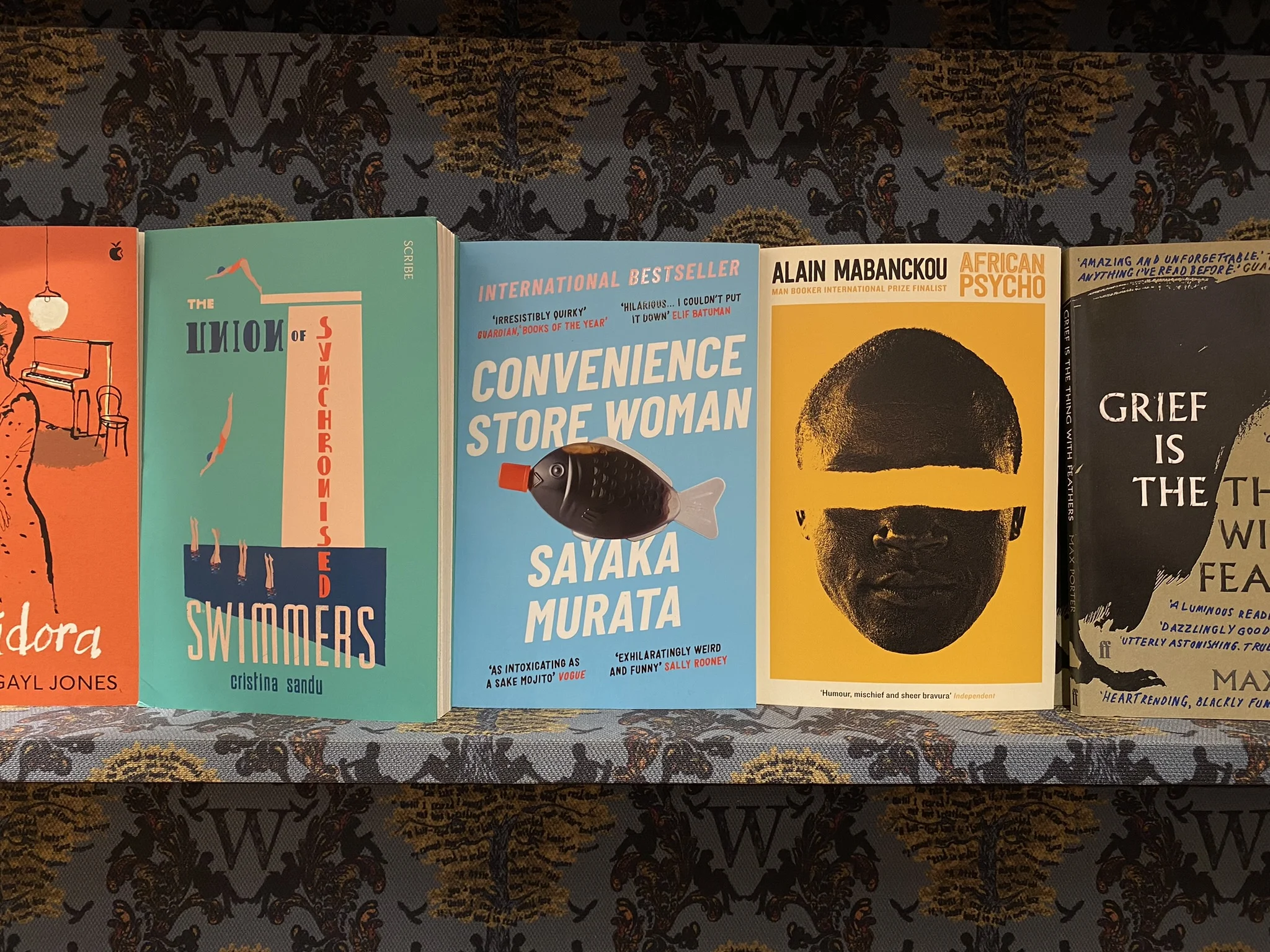Stranded somewhere between home working and the capital metropolis, my flatmates and I took a detour to the pub. Naturally, the conversation descended into the usual mid-covid quarter-life crisis: relationships, the future, our careers and we have all, somehow, come to the conclusion that we must have a dream job.
This conversation was particularly topical as I have recently finished reading Convenience Store Woman by Sayaka Murata and of course, my flatmates were the first victims of my ramblings about it.
The very title of this novel, deadpan and literal, reflects the personality of Keiko, a 36-year-old store worker who felt like she never quite fit in until she was embraced by the warm glow of her shop’s lights and the safety of its consistent rules. Over the course of her life, Keiko has felt indifference to most things, always failing to “pull off being a person” - feeling like she cannot uphold society’s rules or measure up to her family’s expectations.
In order to remedy this in adulthood, she concocts a plan to mould the office misogynist into the facade of a husband to free her from the social constraints still forced upon women today. In a relationship that was doomed from the start, I don’t think anyone was surprised at how it ended. Although, the ending itself left me pondering my own future and more broadly, the concept of a dream job.
Keiko never had a dream job, she bounced through school and university alone, like a lot of people, with – admittedly – some very interesting behaviours separating her from her peers. She was made to feel different, forced out of the box everyone else seemed to so easily fit into. Until she was walking home from university and, fixated on the shell of an aquarium-like structure, became enamoured by the simplicity of the soon-to-be convenience store. Struck by the space, engulfed in its minimalism, Keiko finally felt like she fit; she finally felt loved.
And this love came second to none. In her mission to just exist, her false-fiancée convinces her she must leave her beloved store and find a job that can sustain both of their futures. He explains, “without a career or a husband, you’ll be of no value to society”, in coercion to actually fund his parasitic ways. This plan comes crashing down on them – or rather, him – when Keiko realises that she had everything she needed all along: her love of her job, and the love from her job. She listens to “the voice of the convenience store” that feeds into her innermost desires, guiding her to live for herself not for society.
We’re taught throughout life that we need to work hard in school to get a job that we love in order to feel fulfilled. Keiko drops out of university, Keiko has never been in a relationship and yet, it works for her, she still feels fulfilled. She lives in such stark contrast to the women we grew up with in the media – the women we were told to be.

If Convenience Store Woman were a film, it would fit neatly into the Y2K genre of independent women movies: exciting, succinct, relatable and with an omniscient narrator that guides you through our unsuspecting female protagonist’s life. Of course, following in this tradition would mean the film would be somewhere between romantic comedy and teen drama – somewhere between 10 Things I Hate About You and Clueless. But Keiko breaks the mould of the Y2K Woman: she lives alone, she is not particularly ambitious and her main goal is simply to exist.
My flatmates and I pondered why we should have dream jobs at all and working through various theories, we were reminded of a video that posits the reason young adult women feel the overwhelming need not only to conform to society’s standards, but also to exceed them is because of the media we ingested growing up.
Much like Keiko, we have all, as women, felt the need to marry well, have children and forge a successful career. They explained that because the media we grew up with contained ambitious young women who go through social hardship and somehow still end up getting both the dream guy and the dream job at the end, we have set our standards too high for our own lives.
I agree that the media we ingested in childhood has affected our development but I do not agree that our standards are too high. These movies helped to set a precedent in the early 2000’s; establish the idea that being a woman does not have to be defined by your relationships or family. Keiko does not define herself by these standards either. She always exists outside of conventional standards and for so long, she was still constrained by these norms - by her family, by her relationship, by the need to develop her career.
But unlike in these films, as the novel unfolds, Keiko begins to define herself by her own standards. By what makes her happy. By what allows her to exist.
While in these movies we are still conscious of the career choices of our female-led male-directed characters, we are not in Convenience Store Woman: she is a woman written by a woman. Often male, often older, these films tell the stories of young women from a man’s perspective. Sure, she’s fierce and independent, but she still ends up a bored housewife with a life she did not earn after the movie ends.
We’re sold on the idea of a dream job – we’re sold a literal dream. We’ve been sold on that dream, as women, for the last two decades, if not more. We’re told to get a job quickly out of university, get a better job, get married and then give up the life you’ve worked for to have children. Keiko doesn’t need a dream job. Keiko never worked to find fulfilment, she found it in herself. She fights against the future set for her by the men that came before us.
That evening, at the pub, my flatmates and I reeled off different features we expected our dream job to have and conveniently, they all seem to match up. Enacting lives we didn’t feel we could control, everything became clearer. We do not actually need dream jobs. We do not actually need to adhere to these standards.
A whole generation of women have grown up and been marooned between ambition and the need to perform their societal duties. There is very little media from my childhood that I believe truly and accurately depict an independent woman. Convenience Store Woman marks a change in the writing of women and the perception of them by a new generation.
There have been incredibly strong female protagonists written by women in history, but none quite like Keiko. If we can unlearn what is expected of us and just learn to exist; revel in the everyday, celebrate monotony and put ourselves first, we can live as contently as Keiko does.
Weekly emails
Get more from Louise
The Fledger was born out of a deep-seated belief in the power of young voices. Get relevant views on topics you care about direct to your inbox each week.
Write at The Fledger
Disagree with Louise?
Have an article in mind? The Fledger is open to voices from all backgrounds. Get in touch and give your words flight.
Write the Contrast

